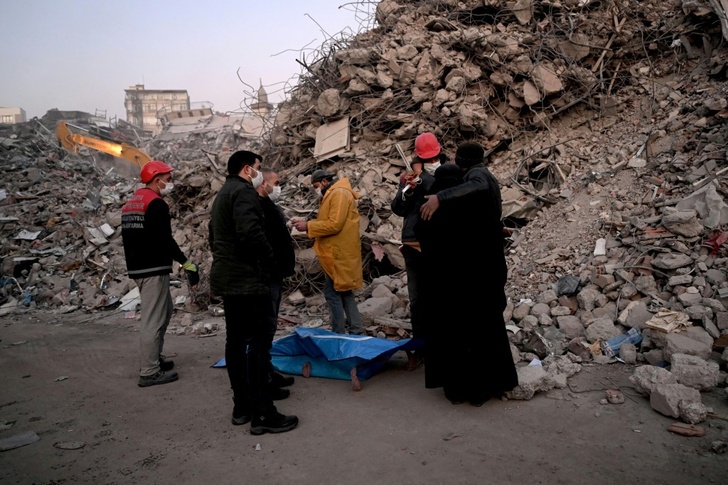The United Nations decried Sunday the failure to ship desperately needed aid to war-torn regions of Syria, while warning the death toll of more than 33,000 from the earthquake that also struck Turkey is set to rise far higher.
A UN convoy with supplies for northwest Syria arrived via Turkey, but the agency's relief chief Martin Griffiths said much more was needed for millions whose homes were destroyed.
"We have so far failed the people in northwest Syria. They rightly feel abandoned. Looking for international help that hasn't arrived," Griffiths said on Twitter.
Assessing damage in southern Turkey on Saturday, when the toll stood at 28,000, Griffiths said he expected the figure to "double or more" as chances of finding survivors fade with every passing day.
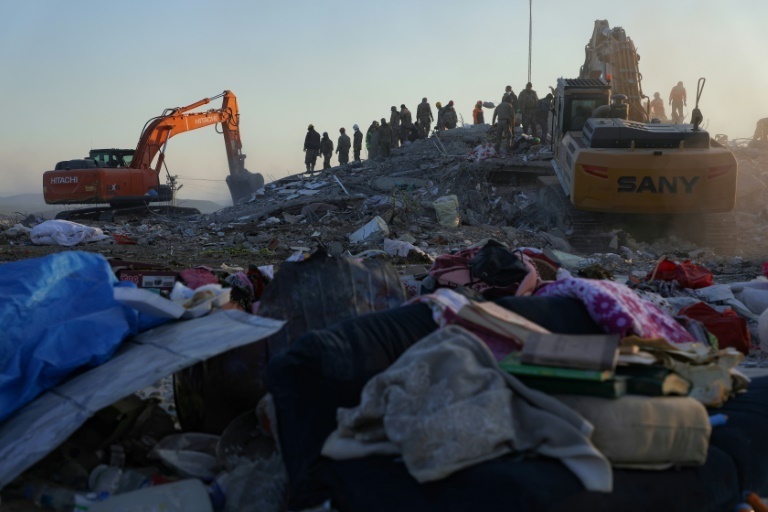
But a 10-truck UN convoy crossed into northwest Syria via the Bab al-Hawa border crossing, according to an AFP correspondent, carrying shelter kits, plastic sheeting, rope, blankets, mattresses and carpets.
Bab al-Hawa is the only point for international aid to reach people in rebel-held areas of Syria after nearly 12 years of civil war, after other crossings were closed under pressure from China and Russia.
The head of the World Health Organization met Assad in Damascus on Sunday and said the Syrian leader had voiced readiness for more border crossings to help bring aid into the rebel-held northwest.
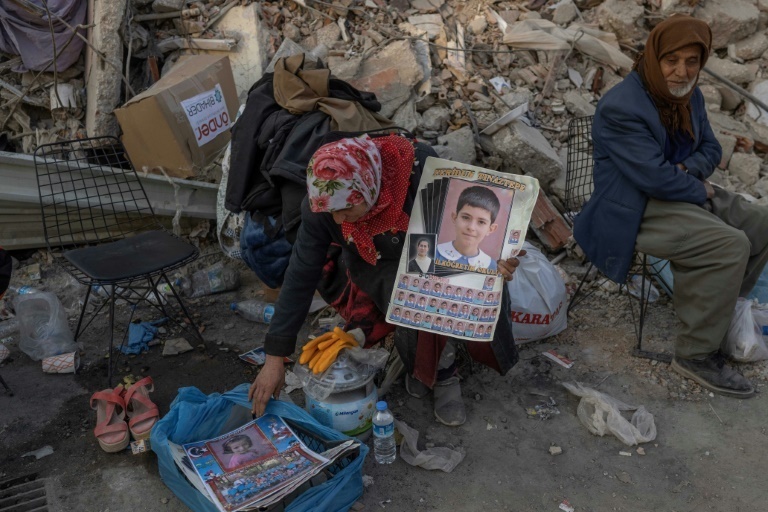
- Conflict, Covid, cholera, quake -
"The compounding crises of conflict, Covid, cholera, economic decline and now the earthquake have taken an unbearable toll," Tedros said a day after visiting Aleppo.
He added that he was "waiting to move across lines to the northwest, where we've been told the impact is even worse".
But while Damascus had given the all-clear for cross-line aid convoys to go ahead from government areas, Tedros said the WHO was still waiting for a green light from rebel-held areas before going in.
Assad looked forward to further "efficient cooperation" with the UN agency to improve the shortage in supplies, equipment and medicines, his presidency said.
He had also thanked the United Arab Emirates for providing "huge relief and humanitarian aid", with pledges of tens of millions of dollars.
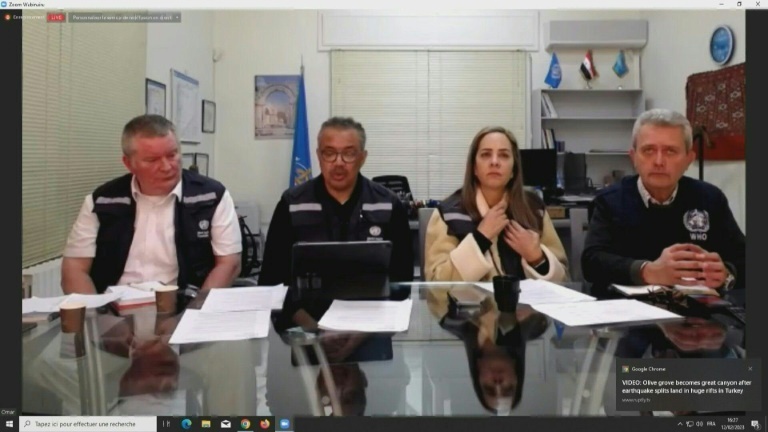
An Israeli emergency relief organisation said Sunday it had suspended its earthquake rescue operation in Turkey and returned home because of a "significant" security threat to its staff.
- Miraculous tales -
Miraculous tales of survival have still emerged, though experts caution that hopes for finding people alive in the devastation dim with each passing day.
Almost 160 hours after the quake, several more people were rescued, including an eight-year-old boy in Gaziantep and a 63-year-old woman in Hatay, state media reported.
Turkey's disaster agency said more than 32,000 people from Turkish organisations are working on search-and-rescue efforts, along with 8,294 international rescuers.
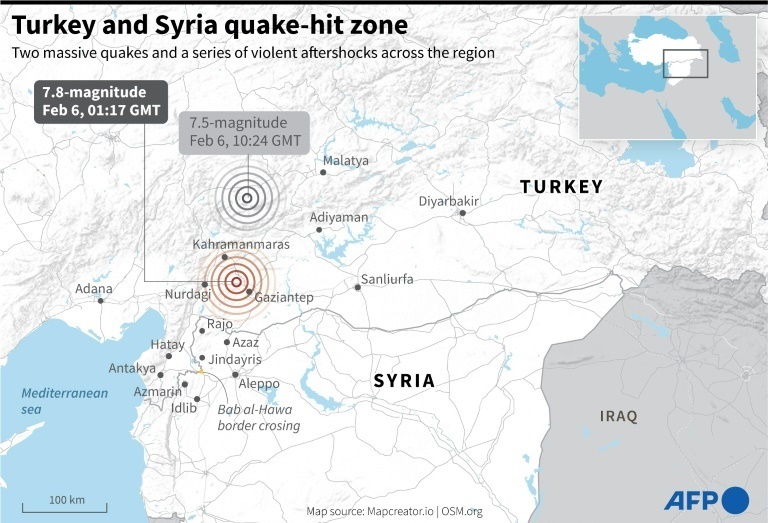
"If we had this kind of equipment, we would have saved hundreds of lives, if not more," said Alaa Moubarak, head of civil defence in Jableh, northwest Syria.
- Anger grows -
Syria's transport ministry said 62 aid planes had landed in Syria this week with more on the way from Saudi Arabia.
Jordan's foreign ministry announced the country's air force had flown the first two planeloads of 480 UN tents to Syria and Turkey "out of 10,000 tents that will be transported" to the two countries.
After days of grief and anguish, anger in Turkey has been growing over the poor quality of buildings as well as the government's response to the country's worst disaster in nearly a century.
A total of 12,141 buildings were officially either destroyed or seriously damaged in Turkey.
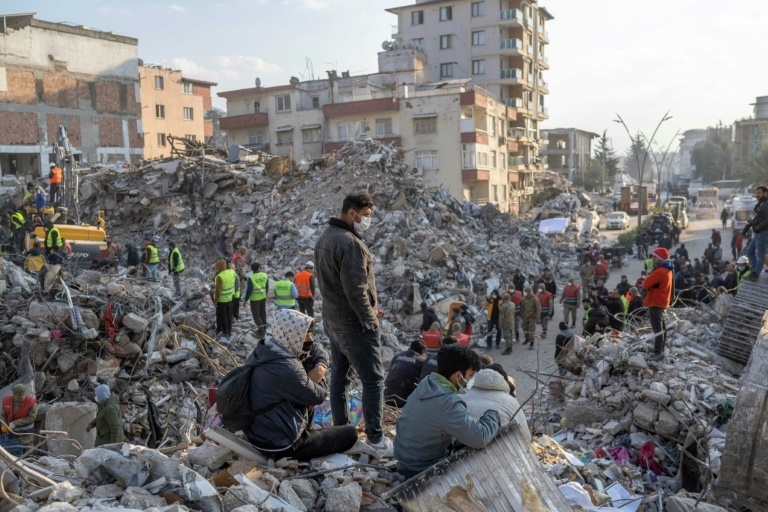
Officials and medics said 29,605 people had died in Turkey and 3,581 in Syria from Monday's 7.8-magnitude quake, bringing the confirmed total to 33,186.
burs-bp/lcm
© Agence France-Presse
Your content is great. However, if any of the content contained herein violates any rights of yours, including those of copyright, please contact us immediately by e-mail at media[@]kissrpr.com.
Source: Story.KISSPR.com

